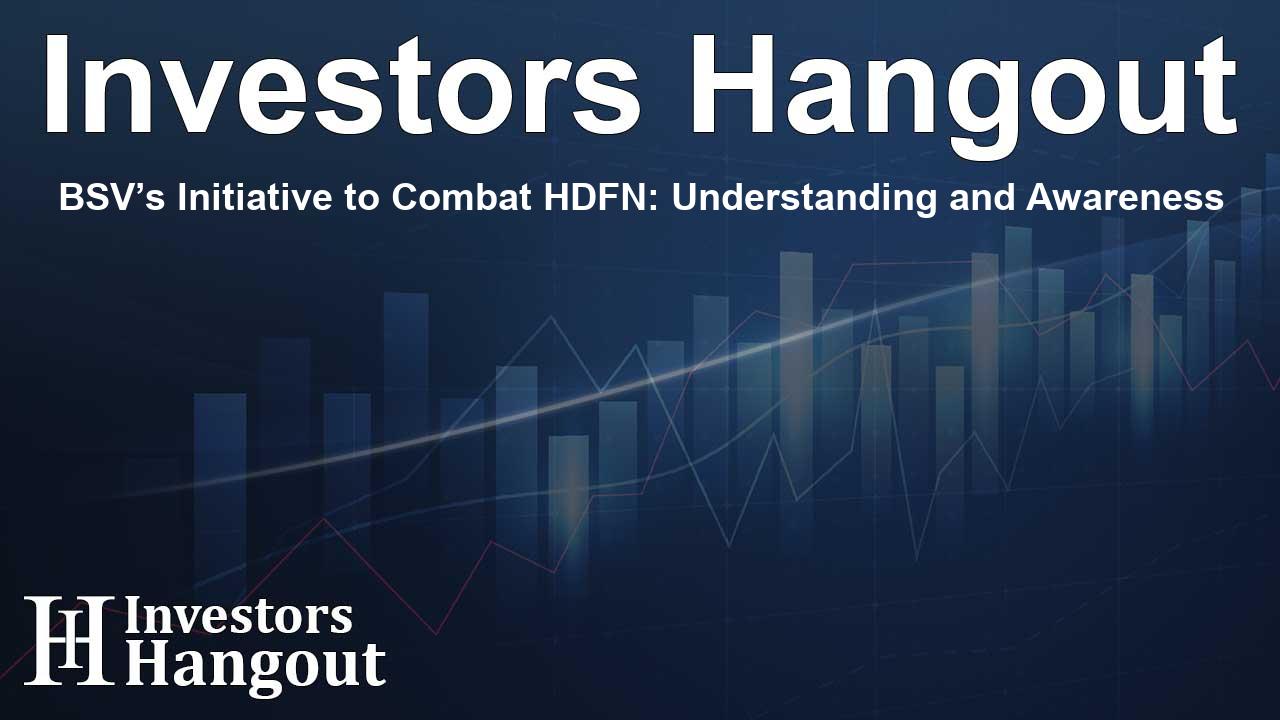BSV’s Initiative to Combat HDFN: Understanding and Awareness

BSV’s Initiative to Combat HDFN: Understanding and Awareness
BSV has launched an awareness campaign dubbed "Voice of Africa" aimed at educating communities about Haemolytic Disease of the Newborn (HDFN). This initiative is crucial as HDFN affects countless families each year due to blood group incompatibility between mothers and their babies.
HDFN, known medically as erythroblastosis fetalis, arises when an Rh-negative mother carries an Rh-positive child. The exposure to Rh-positive blood during childbirth can lead to the mother developing antibodies that attack the baby’s red blood cells, posing serious health risks.
Understanding HDFN and Its Challenges
Understanding the implications of HDFN is vital. A significant challenge in many regions, including some African countries, is the low awareness and lack of resources to manage this condition effectively. In various studies, it has been revealed that a notable percentage of women are affected by Rh incompatibility, and the actual incidence of HDFN remains ambiguous due to diagnostic difficulties.
In many places, including parts of Africa, there is no standardized protocol for the management of Rh-negative pregnancies. Diagnostics, such as the indirect Coombs test, are essential, but not consistently accessible. Some mothers receive treatments like anti-D immunoglobulin to prevent HDFN, yet availability can be limited.
Current Efforts and Advocacy
The campaign aims to bridge the gap in awareness and treatment options. Through public education, BSV promotes screenings and timely treatments to manage Rh incompatibility. Dr. Joy Onyinyechi Chionuma, an advocate in this field, emphasizes the need for resources as screening tests and treatments are often financially prohibitive.
Moreover, a multifaceted approach is necessary, combining education, healthcare access, and community support to mitigate the effects of HDFN. The rising recognition of maternal health issues in various countries signifies a shift toward tackling these hidden health crises more seriously.
The Broader Impact of HDFN
HDFN can have devastating consequences, not just for the newborns affected but also for families dealing with the emotional and financial strains of ongoing care. Without proper interventions, the implications can extend to severe health complications, highlighting the urgency of raising awareness associated with this condition.
Global Perspectives on HDFN Management
In regions like Ghana, Rh-negative mothers are provided with preventive treatments to manage potential complications associated with HDFN. This proactive approach helps in reducing the number of HDFN cases. Hospitals and health systems are tasked with not only identifying at-risk pregnancies but also administering appropriate care.
Education around maternal-fetal alloimmunisation is also gaining traction, emphasizing the importance of early detection and preventive measures during pregnancy. By improving protocols and access to treatment, health systems can effectively reduce the burden of HDFN.
Strengthening Healthcare Access
Another thrust of BSV's initiative focuses on healthcare access for all pregnant women, especially those who are Rh-negative. Ensuring that every woman has the opportunity to receive timely treatment is pivotal and can significantly decrease the rates of HDFN.
Advocacy also plays a critical role in ensuring that healthcare providers are aware of and trained in managing Rh incompatibility. Comprehensive training for health professionals can lead to improvements in maternal care and health outcomes.
Conclusion: Towards a Healthier Future
Haemolytic disease of the newborn represents a preventable challenge, and BSV is leading the way by fostering awareness and action. By detecting and managing Rh incompatibility effectively, we can save lives and enhance maternal and infant health outcomes across communities.
With ongoing efforts like the "Voice of Africa" campaign, there is hope for meaningful change in how HDFN is perceived and managed, paving the way for healthier futures for mothers and their children.
Frequently Asked Questions
What is HDFN?
HDFN stands for Haemolytic Disease of the Newborn, a condition caused by blood group incompatibility between a mother and her child.
Why is the Voice of Africa campaign important?
This campaign aims to raise awareness about HDFN, improving access to necessary healthcare for mothers and newborns alike.
What can be done to prevent HDFN?
Preventative measures include screenings, administering anti-D immunoglobulin, and timely medical interventions during pregnancy.
How can families affected by HDFN get support?
Support can come through healthcare providers, community awareness programs, and advocacy groups that focus on maternal health.
What role do healthcare professionals play in managing HDFN?
Healthcare professionals are essential in diagnosing, treating, and advising mothers on managing Rh incompatibility during pregnancy.
About The Author
Contact Caleb Price privately here. Or send an email with ATTN: Caleb Price as the subject to contact@investorshangout.com.
About Investors Hangout
Investors Hangout is a leading online stock forum for financial discussion and learning, offering a wide range of free tools and resources. It draws in traders of all levels, who exchange market knowledge, investigate trading tactics, and keep an eye on industry developments in real time. Featuring financial articles, stock message boards, quotes, charts, company profiles, and live news updates. Through cooperative learning and a wealth of informational resources, it helps users from novices creating their first portfolios to experts honing their techniques. Join Investors Hangout today: https://investorshangout.com/
The content of this article is based on factual, publicly available information and does not represent legal, financial, or investment advice. Investors Hangout does not offer financial advice, and the author is not a licensed financial advisor. Consult a qualified advisor before making any financial or investment decisions based on this article. This article should not be considered advice to purchase, sell, or hold any securities or other investments. If any of the material provided here is inaccurate, please contact us for corrections.
